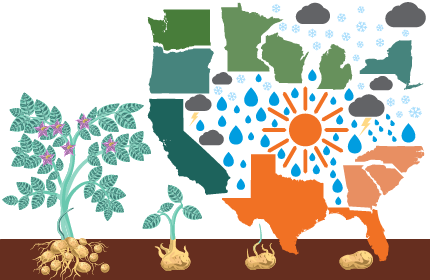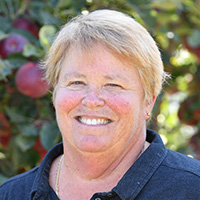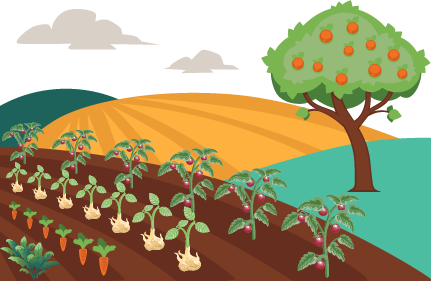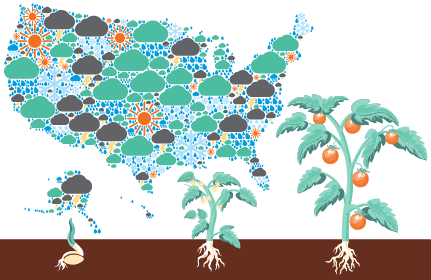Preparatory Webinars for the Extension Dialogues on Climate Change and Analogs of US Specialty Crop Production
-

January 14, 2022-January 21, 2022
(Virtual)
Pullman, WA, USA
As part of extension and outreach efforts of the multi-disciplinary, multi-institutional project “Fruit and Vegetable Supply Chains: Climate Adaptation and Mitigation Opportunities” (USDA NIFA Award: 2017-68002-26789), a concept called “growing condition analogs” is being explored. These analogs ask the question:
Is there a county in the US whose current growing conditions have characteristics that may resemble what I can expect in my county in the future?
Answering this question could allow the creation of a network of locations for information exchange related to climate change implications for specialty crops (fruits, nuts, berries, vegetables, etc.).
The project team comprised of researchers and extension specialists at the University of Florida, Agriculture & Food Systems Institute, University of Arkansas, University of Illinois, International Food Policy Research Institute, World Agricultural Economic and Environmental Services, and Washington State University have identified analogs for specialty-crop producing counties in the United States. As a next step, the team organized a series of facilitated dialogues throughout March 2022 where extension professionals with knowledge about specialty crop production practices in the target and analog counties were paired to have a discussion around climate change implications for these important food crops. The dialogues aimed to create an opportunity for initiating partnerships for a nationwide Specialty Crop Extension Network for climate adaptation.
To introduce the analogs, give a sense of what to expect at the March 2022 dialogues, and help participants self-select into breakout groups, the project team organized webinars on January 14 and 21, 2022, with a focus on the following states: Washington, Oregon, California, Wisconsin, Minnesota, Michigan, New York, North Carolina, South Carolina, Texas, Florida, and Georgia.
Organizers & Moderators

Kirti Rajagopalan
Washington State University
Karen Lewis
Washington State University
Julian Reyes
USDA Climate Hubs
Chad Kruger
Washington State University
Dave Gustafson
Agriculture & Food Systems Institute
Rachel Melnick
Agriculture & Food Systems Institute


